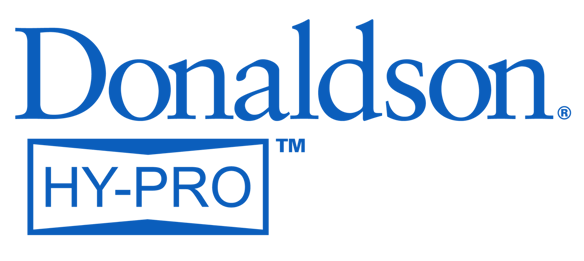Extending Fluid Life Saves Money and Helps the Environment
Our mission is to make our customers as efficient as possible, and we achieve that with the highest quality filtration products and total system cleanliness strategies to maximize uptime, productivity and prevent costly fluid contamination related failures. Been there. Done that. Going to do it again tomorrow. But that's not the only way we make our customers efficient. Extending the useful life of in-service fluids pays big dividends in reliability, saves money on premature fluid replacement costs, and reduces the environmental impact of industry by reducing the amount of fluids used and discarded. Enhancing reliability, saving money, and protecting the environment are not only good business, they're our responsibility. To help reduce oil usage, let's first understand why fluids are condemned and prematurely replaced.
Changing on time.
Routine oil changes based on operating hours for in service oil are common for large diesel engines, gearboxes, and mobile equipment hydraulics to name a fe. For instance, one of our customers operating in the drilling industry opted for a dedicated off-line contamination solution that addressed particulate and water contamination plus a routine oil analysis instead of their normal 45 day oil change, extending their useful oil life to over a year. By implementing filtration and pro-actively monitoring their fluid, they were able to save millions of dollars per year on oil costs alone.
In a large diesel engine application, lube oil was changed every 500 hours based on OEM requirements to change once the Total Base Number had dropped to 50% of new. By installing the right off-line Hy-Pro solution, TBN was maintained in the acceptable range well beyond 2000 hours of engine operation. In this case, incorporating proper filtration enabled the customer to quadruple engine oil life, saving big money on oil. And since the units were remotely located, their savings were compounded with the reduction in maintenance and man hours.
An operator of large haul trucks now uses Hy-Pro filter cars with a particle monitor in lieu of dumping hydraulic drive oil during routine service. The systems are operating cleaner than ever and the oil is only changed after oil analysis indicates a viscosity loss or additive depletion.
Cleaning oil saves you from changing it.
Coal pulverizer gearbox oil is often filtered with a wire mesh strainer, and the oil is usually chaged once it's so dirty you can't see through it. The trouble is the gearbox is on a crash course with a premature rebuild even if the oil is changed annually. Hy-Pro's FSW, combined with a Hy-Dry breather, maintains gearbox fluid cleanliness, avoiding a rebuild. Properly located sample ports on the FSW allow for accurate oil sampling and analysis. In hydraulic and lube systems dirt makes more dirt, but if we keep fluids clean, they can be changed based on oil condition. Commit to control gearbox contamination with Hy-Pro and greatly extend the life of in service gearbox oil.
Protect fluid additives and bottom line profitability.
When today's group ll turbine oils are condemned, it means they have high varnish potential or the sacrificial antioxidant (AO) additive levels have dropped below 20% of new. Hy-Pro's SVR and FSTO turbine oil conditioning systems will remove and prevent varnish, but that's not all they do. Both systems also remove oxidation by-products on the molecular level as they are created, greatly reducing the consumption of AO additives. And by maintaining high levels of your AO additives, Hy-Pro can double or even triple your turbine oil useful life.
Demulsibility if life or death for oil.
And when it's gone, so is the oil. But what is demulsibility? it's the ability of the oil and water to naturally separate, and it is usually a function of the purity of the oil's base stock. Steel mill lube oils are exposed to high levels of particulate and water contamination. Wire mesh strainers are usually used for filtration, allowing ISO Codes to rise above acceptable limits. For water control, mills rely on the oil's natural demulsibitly characteristic to shed water which they decant from the reservoir daily. Eventually, the stress of excessive particulate contamination and continuous operation at our above water saturation point causes the oil to lose its demulsibility. Antiquated centrifuges don't cut it. You need a total Morgoil solution, precisely what Hy-Pro's VUD delivers. The VUD offers high efficiency particulate removal and removal of free, emulsified and dissolved water that stays ahead of ingression. that means healthy oil, no decanting, less oil down the drain, and longer Morgoil useful life.
Group ll turbine lube oil demulsibility can be compromised by oxidation by-products and acids. These polar forms of contamination occur during oxidation and form bonds with water which prevent the natural separation of oil and water. Hy-Pro's SVR and FSTO remove acids and oxidation by-products and have been proven to restore the demulsibility of turbine oil. Before you dump your turbine oil, let us test it. We might just be able to raise the dead to save your oil and you budget.
No need for EHC bleed and feed.
Steam turbines and high temp hydraulic applications run on phosphate ester fire resistant fluids which are difficult to maintain. Phosphate ester has little to no additives, but it attracts water. When exposed to water, hydrolysis creates aggressive acids. Fullers earth and Selexcorb filters are used to remove acids but they also add dissolved metal ions to the oil, causing servo valve deposits, slow response time and unit trips. Before that, the contamination causes resistivity to drop and the ISO Codes to rise even further. Then the fluid supplier will recommend a partial bleed and feed or a total flush followed by complete fluid replacement. Sounds like a complicated situation with an expensive solution that won't solve the problem. Don't buy more fluid or flush!
Hy-Pro's FSAPE is a total solution for phosphate ester fluid maintenance that not only prevents deposits but excels at removing water and acid, lowering ISO Codes, removing dissolved metals and, yes, can even restore resistivity to keep all of you key fluid metrics in the green.
Don't settle for maintenance mediocrity and premature fluid replacement. Treat your fluids like an important system component and see the financial and environmental impact you can have.






